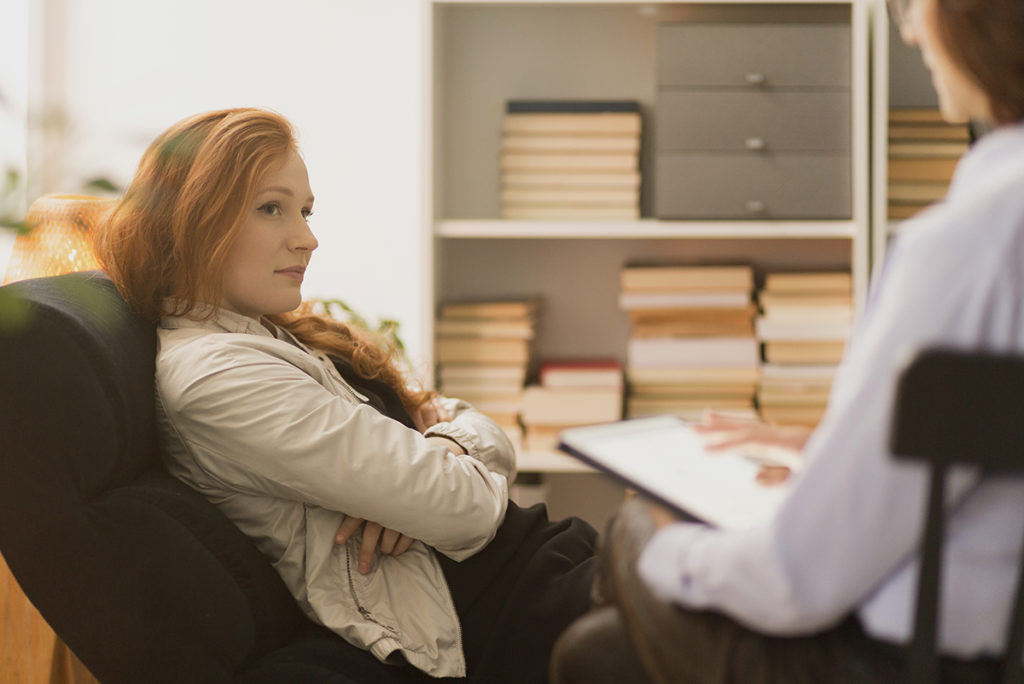If you are a person with an addiction to alcohol, drugs or food, the holidays can be rough. Even anticipating the holiday season can send people with addiction into high alert, worrying they will spin out of control as soon as the autumn leaves start to fall. The reality is that people around you are going to be drinking more around the holidays — and alcohol-spiked drinks seem to be everywhere — making it more difficult to avoid alcoholic relapse, or any other kind of relapse, for that matter. The general relapse rate for addicts in recovery is estimated to be between 40% and 60%. The potential for relapse is highest during the first year of recovery, and also during the holidays, when even people who have many years of sobriety under their belts can be triggered by end-of-the-year financial strains, isolation and loneliness, difficult feelings, memories or family interactions and dynamics that cause stress, anxiety, depression and cravings. There is surprisingly little research supporting the notion that relapse rates spike over the holidays, but the anecdotal evidence is overwhelming — countless people in recovery report that the winter holidays (and, in fact, any holiday) are times of heightened stress and temptation because “holiday cheer” is often associated with parties, drinking alcohol and overindulging in everything.
A Little Planning Goes a Long Way in Recovery
To make sure you don’t fall prey to holiday season turmoil and endanger your recovery, get an early alert system in place to enhance your relapse prevention strategy. This system should include early warning signs or feelings that indicate your resolution to stay sober is getting shaky and you need to call a sober friend or implement another coping tool to stay strong. Here are seven sober coping tools or strategies you can build into your relapse prevention plan in advance to help you navigate the holiday landscape and avoid any bumps that threaten to topple your recovery:
- Shore up your holiday recovery support system in advance. Schedule some extra sessions with your sponsor or addiction counselor to strengthen your recovery before peak holiday season arrives. Early warning signs of stress may arrive in October, even before the trick-or-treaters knock on your door. Don’t let negative feelings escalate. October meetings with your sponsor or counselor can help you address how you might cope with triggers around Thanksgiving, Christmas/Hanukkah and New Year’s Eve. Talk about your fears, potential stumbling blocks and the difficult feelings you anticipate experiencing over the holidays. Does visiting your family fill you with anxiety? Does returning to childhood environments push all of your “freak-out” buttons? Talk about it now so you can get help mapping out some feasible avoidance techniques and de-stressing strategies.
- Reconnect with sober friends before Thanksgiving, and stay connected through the holidays. If you haven’t been active in fellowshipping with your recovery support group or sober network, early November would be the ideal time to get more proactive. Reach out to the sober friends you’ve met in rehab or 12-step groups, or make an effort to attend a few extra recovery meetings — maybe one or two that you don’t normally attend — to reinforce or expand your sober network. Find out if other people in these groups have suggestions for relapse prevention strategies you can use to avoid getting tripped up by holiday turmoil. Exchange phone numbers and make an agreement to call each other for support when you hit rough patches during the holidays.
- Heal past hurts and resentments before the holidays arrive. Are you planning to travel home during the holidays or visit friends and relatives you haven’t seen in a while? In advance of your trip, consider reaching out to people with whom you need to make amends. Try to heal old wounds, or at least get the conversation started. This can relieve stress over anticipated conflicts that might arise during the holidays, and can put you on more solid footing with your loved ones before your visit.
- Avoid friends and old haunts that could become trigger traps. If going home for the holidays means you might bump into old friends you used to party with — and you suspect your old buddies are still drinking or using drugs — you need to strategize a way to avoid them. You might contact them in advance to tell them you’re sober now and won’t be visiting the bar or your old hangouts, but wanted to wish them well. Or, you may choose not to contact them at all. Either way, be sure to let your family know that you won’t be socializing with your old pals (and why) so they don’t invite them to gatherings while you’re in town and unknowingly create a trigger trap. It would also be a good idea to plan (and practice) what you might say to any friends you unexpectedly bump into while you’re home.
- Plan ahead to avoid holiday foods and beverages that might contain alcohol. The last thing you need during the holidays is to get ambushed by a hidden trigger. Steer clear of the eggnog, cider, holiday punch, fancy coffee drinks, fruitcake and bread pudding that are oftentimes spiked with alcohol, as well as less obvious culprits such as meat dishes that have alcohol sauces or marinades, and desserts like custards, pies, mousses, flambés, crepes and trifle (these often have added sherry, Kahlua, crème de menthe or other alcohols to add flavor).
Make a point of asking your host or the cook in advance if there will be alcohol in any of the menu items they are serving. If you don’t want to disclose your addiction, you might say that you have an allergy or it interacts negatively with a medication you are taking. Help both yourself and the host by offering to bring a nonalcoholic drink and a nonalcoholic dish to the event. If you are a food addict who abstains from sugar, flour and other trigger foods, plan to bring a sugar-free, gluten-free or other alternative treat to the holiday party so you can have something without ruining your recovery.
- Establish limits so you don’t overextend yourself. Remember, in recovery you need to stay well-rested and avoid getting too tired (as well as too hungry, angry or lonely). Feeling tired and overwhelmed can be an early warning sign that you are heading for a relapse. Prioritize your tasks for the holidays by getting a majority of shopping and other things done before December. Planning ahead will help you avoid last-minute, frenzied shopping or cooking, which can add to your stress levels.
You also don’t want to wear yourself out by cooking every single meal for your guests or baking holiday treats for all of your neighbors and friends. Make a decision to let some things go. Order a few delivered or precooked meals. To conserve your energy and your budget, accept that your friends and neighbors will just receive cards this year instead of gifts or homemade goodies. Store-bought desserts can also be perfectly delicious. Is traveling too much for you this year? Don’t do it. Let family know your budget or your health prevent it, but you’ll call to wish them a happy holiday. (Replace the time you would have spent traveling with rest and healthy sober support activities.)
- Look for holiday magic in new places. Focusing on the children in your life and how they experience the holidays can help get you out of the doldrums and out of yourself. Most kids find the holidays magical — the change of seasons, the decorations and lights, the music and the aromas, the winter activities and, of course, the gifts. Through them you can get back in touch with the essence of the holiday, and perhaps forget about the usual emotional baggage you associate with it. Tuning into kids and their sense of wonder can give you a new perspective.
Finally, visualize yourself clean and sober on Jan. 1, having navigated the holidays in abstinence. There you are, ready to embark on another year in recovery! Sometimes this image is the best motivation to get you through the holidays without relapsing. Lock in on that picture of the healthy happy you and keep it in your mind’s eye every day from now through January.
Sources
Helpful Hints for Navigating the Holidays. John M. Grohol, PsyD. PsychCentral. https://psychcentral.com/lib/helpful-hints-for-navigating-the-holidays/ Coping with Holiday Stress. Dr. Heidi Lilienthal. PsychCentral. https://psychcentral.com/lib/coping-with-holiday-stress/ 5 Holiday Stressors That Lead To Relapse. Promises, November 2013. https://www.promises.com/articles/relapse-prevention/5-holiday-stressors-that-lead-to-relapse/






